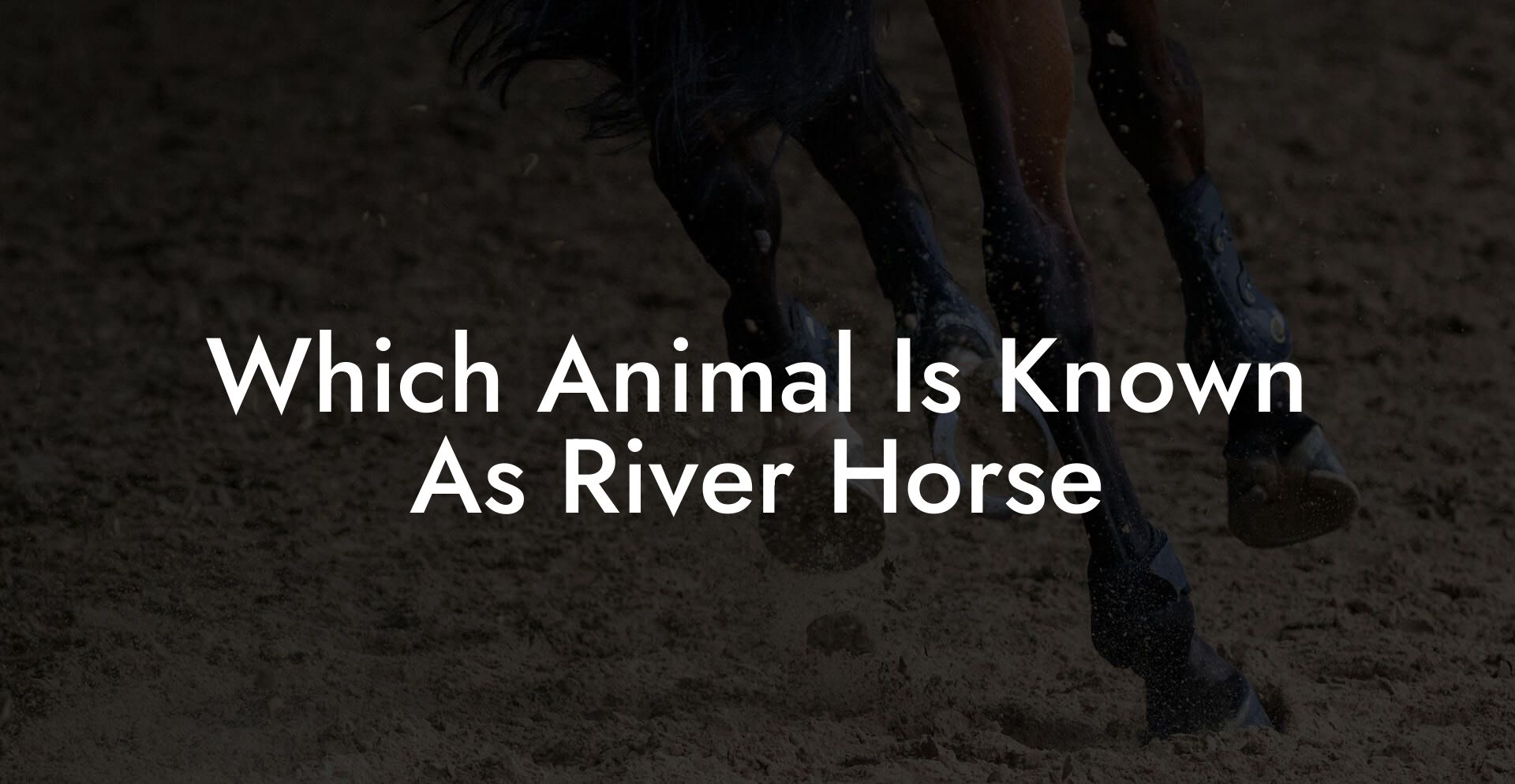For many animal enthusiasts, learning about the amazing creatures that inhabit our world can bring immense joy and fascination. While some animals have distinct or remarkable features, others may be known for their seemingly odd nicknames or associations. One such animal is referred to as the "River Horse." To unravel the mystery behind the name, we will explore which animal embodies this title and take an in-depth look at its unique characteristics, habitat, and its significance in the world.
Which Animal Is Known As River Horse Table of Contents
Which animal is known as the River Horse?
The animal that carries the intriguing nickname "River Horse" is none other than the hippopotamus. The common hippopotamus, or Hippopotamus amphibius, is a large, semi-aquatic mammal native to Africa. The name "hippopotamus" itself is derived from the ancient Greek words "hippos," meaning "horse," and "potamós," meaning "river." Hence, the name "River Horse" was born.
General characteristics of the Hippopotamus
The common hippopotamus is an impressive and imposing creature that boasts the following features:
- Weight: Adult hippos can weigh between 2,870 and 3,310 pounds (1,300 and 1,500 kg) for females, and 3,960 to 4,410 pounds (1,800 and 2,000 kg) for males.
- Length: They can measure up to 12.4 to 13.1 feet (3.8 to 4 meters) in length.
- Skin: Hippos have thick, hairless skin that protects them from potential predators and environmental factors.
- Jaws: Hippos possess powerful, wide-opening jaws that are capable of generating an impressive bite force.
- Teeth: Their teeth, particularly the canine tusks, can grow up to 20 inches (50 cm) long and weigh close to 6.6 pounds (3 kg) each.
- Social Behavior: Hippos are social animals, often found in groups called pods, which can contain up to several dozen individuals.
Habitat and Distribution
Hippos inhabit a variety of aquatic environments in sub-Saharan Africa, such as rivers, lakes, and swamps. Their ideal habitat consists of shallow water bodies with adjacent grassy areas for grazing. Some key countries where hippos can be found include Zambia, Tanzania, South Sudan, South Africa, Kenya, and Ethiopia, among others.
Why are Hippos called River Horses?
The association between hippos and rivers is evident, as these mammals spend a significant portion of their lives in water bodies. Their semi-aquatic nature led to their name morphing into "River Horse," highlighting their preference for rivers as their main habitat. Hippos are uniquely designed to thrive in their watery homes, thanks to several adaptations that enable them to survive both on land and in water, such as:
- Nostrils, eyes, and ears positioned on top of their heads, allowing them to submerge their bodies while still being able to see, hear, and breathe.
- A unique skin secretion called "blood sweat," which acts as a natural sunscreen and protects hippos from harmful sun rays and water loss.
- Powerful limbs and an ability to hold their breath for up to five minutes, enabling them to move efficiently through water.
Which Animal Is Known As River Horse Example:
Imagine you are on a safari in Tanzania, exploring the wonders of the African wilderness. Your knowledgeable guide brings you to the banks of a river, where you can observe the captivating "River Horses" in their natural habitat. With joy and wonder, you watch the hippos as they playfully splash in the shallows, seemingly at ease in their watery world. Your guide goes on to explain the various adaptations that make these creatures so uniquely adapted for their semi-aquatic lifestyle, and you feel a sense of awe at the magnificent diversity of our planet's wildlife.
Now that we've uncovered the mystery behind the nickname "River Horse," it's evident that the common hippopotamus holds a special place in the natural world. This impressive and powerful animal serves as a perfect example of how species adapt to their environment and thrive in their unique habitats. We encourage you to delve deeper into the fascinating world of hippos and other animals by exploring more articles on the "How to Own a Horse" blog. Share your thoughts and newfound appreciation for these enchanting creatures with fellow animal lovers, and remember to keep a sense of wonder alive as you continue to learn more about the amazing animals that roam the earth.













